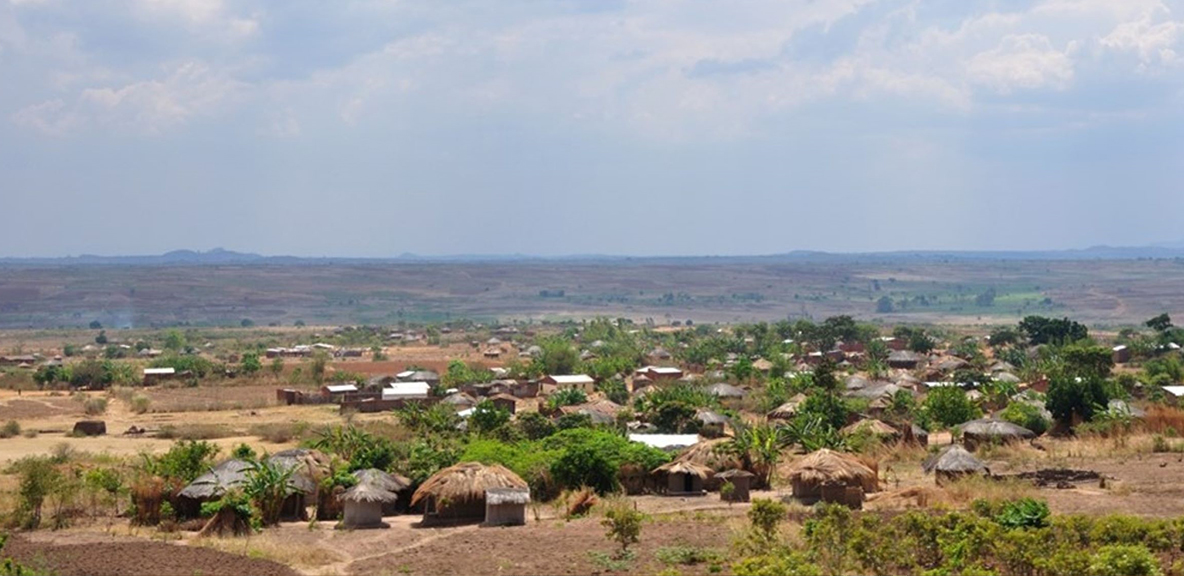Sector Results and Learning:
Land
This Land Sector Results and Learning page is a repository of evidence generated by all MCC-funded land interventions. To promote learning and inform future program design, this page captures monitoring data from key common indicators, showcases recent and relevant evaluations, and includes all agency lessons from completed land evaluations to-date.
What Do We Invest In?
MCC has funded $445.9 million in land interventions as of September 2024. These interventions fall into the following categories: legal, regulatory and policy reform; institutional strengthening; clarification and recognition of land rights; and land use planning and natural resource management.
-
Clarification and Recognition of Land Rights
 These programs address weak tenure security and weak understanding of land rights by clarifying and recognizing use rights, rights holders, and parcel boundaries.
These programs address weak tenure security and weak understanding of land rights by clarifying and recognizing use rights, rights holders, and parcel boundaries. -
Institutional Strengthening
 These programs address weaknesses in land administration by investing in records management and transaction systems, business process change, infrastructure, equipment, and human capacity.
These programs address weaknesses in land administration by investing in records management and transaction systems, business process change, infrastructure, equipment, and human capacity. -
Land Use Planning and Natural Resource Management
 These programs address inadequacies in land use and management by clarifying land use typologies, demarcating village boundaries, and establishing land use plans.
These programs address inadequacies in land use and management by clarifying land use typologies, demarcating village boundaries, and establishing land use plans. -
Legal, Regulatory and Policy Reform
 These programs address the land governance environment by strengthening the laws, regulations, and procedures for the recognition, administration and transfer of land rights.
These programs address the land governance environment by strengthening the laws, regulations, and procedures for the recognition, administration and transfer of land rights.
What Have We Completed So Far?
MCC and its country partners develop and tailor Monitoring and Evaluation Plans for each program and country context. Within these country-specific plans, MCC uses common indicators to standardize measurement and reporting within certain sectors. See below for a subset of common indicators that summarize implementation achievements across all MCC land investments as of September 2024.
-
135
legal and regulatory reforms adopted
-
399
land administration offices established or upgraded
-
325,920
land rights formalized
-
365,074
parcels corrected or incorporated in land system
What Have We Achieved?
MCC commissions independent evaluations, conducted by third-party evaluators, for every project it funds. These evaluations hold MCC and country partners accountable for the achievement of intended results and also produce evidence and learning to inform future programming. They investigate the quality of project implementation, the achievement of the project objective and other targeted outcomes, and the cost-effectiveness of the project. The graphs below summarize the composition and status of MCC’s independent evaluations in the land sector as of November 2024. Evaluations of land investments that were part of a broader agriculture or irrigation project will be reflected in the Agriculture and Irrigation Sector Results and Learning page. Read on to see highlights of published interim and final evaluations. Follow the evaluation links to see the status of all planned, ongoing, and completed evaluations in the sector and to access the reports, summaries, survey materials, and data sets.
Highlighted Evaluations
-
 Read this Evaluation Brief to learn the results of a project from MCC’s Mozambique Compact that aimed to improve land use efficiency, increase investment and productivity, and develop land markets, leading to increased land values and higher incomes.
Read this Evaluation Brief to learn the results of a project from MCC’s Mozambique Compact that aimed to improve land use efficiency, increase investment and productivity, and develop land markets, leading to increased land values and higher incomes. -
 Read this Evaluation Brief to learn the results from MCC’s Rural Land Governance Project in Burkina Faso that aimed to increase investment in land and rural productivity through improved land tenure security and land management.
Read this Evaluation Brief to learn the results from MCC’s Rural Land Governance Project in Burkina Faso that aimed to increase investment in land and rural productivity through improved land tenure security and land management. -
 Read this Evaluation Brief to learn the final results of a project from MCC’s Cabo Verde II Compact that sought to establish an authoritative management information source to reduce the time and cost of land transactions and registration for all users.
Read this Evaluation Brief to learn the final results of a project from MCC’s Cabo Verde II Compact that sought to establish an authoritative management information source to reduce the time and cost of land transactions and registration for all users.
What Have We Learned from Our Results?
To link the evidence from the independent evaluations with MCC practice, project staff produce an MCC Learning document at the close of each interim and final evaluation to capture practical lessons for programming and evaluation. Use the filters below to find lessons relevant to your evidence needs.

